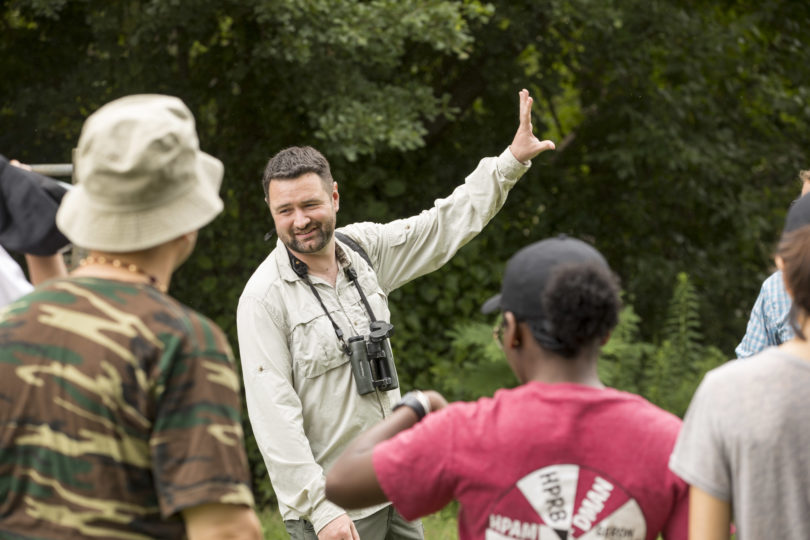It can be hard for graduate students to get involved in their local communities, but the University of Georgia’s GS LEAD program is working to change that.
Funded by an award from the National Science Foundation through its NSF Research Traineeship, Innovations and Graduate Education track, the project—which is formally known as Graduate Scholars Leadership, Engagement and Development—brings graduate students together to make a difference in their community.
“GS LEAD is a project that brings new doctoral students in the STEM fields in over the summer and trains them in leadership, team building, communications and community service,” said Julie Coffield, an associate professor of toxicology and neuroscience in the College of Veterinary Medicine and one of the program’s coordinators. “We want students to learn to reach outside of the lab, start thinking outside the box and be able to connect and communicate with the community.”
The program has two important components, one in the summer and one in the fall. Students arrive on campus over the summer and participate in an immersive, six-week program facilitated by Brandy Walker and Janet Rechtman of the university’s J.W. Fanning Institute for Leadership Development, a public service and outreach unit, through which they work on skills such as networking, teamwork and leadership.
“The summer program is designed to bring people together for different disciplines and work on a central problem or focus,” said Rachael Hart, a second-year doctoral student studying neuroscience who participated in the program in 2016. “What a geneticist understands, I won’t. What an ecologist understands, I won’t. But if we can bring our forces together, we could solve a problem more effectively than if I tried to take it head-on myself.”
Following the summer program, GS LEAD students continue with the program in the fall, where they complete a “Challenge Course” along with their other coursework. In this course, the students break into small groups and apply their collective knowledge to a project benefiting the community.
Hart was part of a team—made up of Christian Anderson, Carly Duffy and Kevin Kirsche—that developed a plan for a community garden for the Wimberly Center for Community Development in Barrow County.
The four students believed the garden could get children outside and give them the opportunity to learn how to garden. Above all, they thought it could help with the lack of access to fresh fruits and vegetables in the area.
“If we can get the kids to see how fun it can be to garden, and bring this home to their parents, then maybe it would have a generational effect instead of a temporary one,” Hart said.
The group solicited input from administrators at the Wimberly Center and then created a 50-plus-page plan that outlined everything that needed to happen for the garden to succeed. The garden plan, along with site plans produced by students from the College of Environment & Design, will be included in a business plan for the center that Kent Wolfe, director of the UGA Center for Agribusiness, is drafting. When completed, it will enable the Winder Housing Authority secure a $200,000 grant from the Appalachian Regional Commission to further develop the Wimberly Center.
“It is all flowing from the guide that students pulled together…it is coming together nicely, using a well thought-out plan,” said Michelle Yawn, executive director of the Winder Housing Authority. “How exciting to know that UGA is so supportive of what we are doing here in Barrow County.”
GS LEAD is now in its third year, and the 2018 cohort consists of 14 students who are entering a diverse mix of doctoral programs that range from microbiology, pharmacy and forestry to history and theater. They spent two days of their first week learning firsthand the complexities and challenges facing communities during field trips to the Georgia Center for Oncology Research and Education in Atlanta, the Atlanta Regional Commission and the Athens Watershed Lake Herrick Project. The experiences of the Summer Academy will prepare them for the fall Challenge Course.
Hart encourages other UGA graduate students interested in community service to participate in the program.
“We are all really fortunate to be in school,” she said. “We can get out into a community, make ourselves more accessible, help where we can and use this gift of education.”








